- Where do DTCs come from?
- How to Read an Mahindra Tractor DTC Codes?
- Mahindra Tractor Error Codes (List of DTCs)
- DTC Error Codes from P0003 to P1114
- DTC Error Codes from P1131 to P1708
- DTC Error Codes from P1709 to P2229
- Can I Reset Mahindra Tractor DTCs Myself?
- Mahindra Tractor Error Codes FAQ
- What to do When a Mahindra Tractor Won’t Start?
ON-Board Diagnostic Trouble Codes (DTC) – it is a code generated by a onboard computer system that helps to identify and diagnose problems with the vehicle. When a fault occurs in the vehicle’s system, the onboard computer generates a DTC code which provides information about the issue. These Mahindra tractor error codes can be read using a special scanner tool, which retrieves the code from the computer and translates it into a description of the problem. DTC codes can help mechanics and technicians diagnose and repair a vehicle more efficiently and accurately.
The Mahindra tractor error codes can vary depending on the tractor model, year, and the specific diagnostic system used. To obtain a comprehensive list of error codes for the most popular Mahindra tractor models, I recommend referring to the user manual or contacting customer support directly. They will have the most accurate and up-to-date information regarding the specific error codes and their meanings for your tractor model.
Where do DTCs come from?
DTCs are generated by the vehicle’s on-board diagnostics (OBD) system – this system constantly monitors the sensors, circuits, and components of the vehicle and detects any abnormality or malfunction. The OBD both diagnoses the fault and displays the DTC through visible warnings such as the illumination of a check engine light. It is also what allows external devices, such as an OBD scanner, to interact with a vehicle’s onboard computer system.
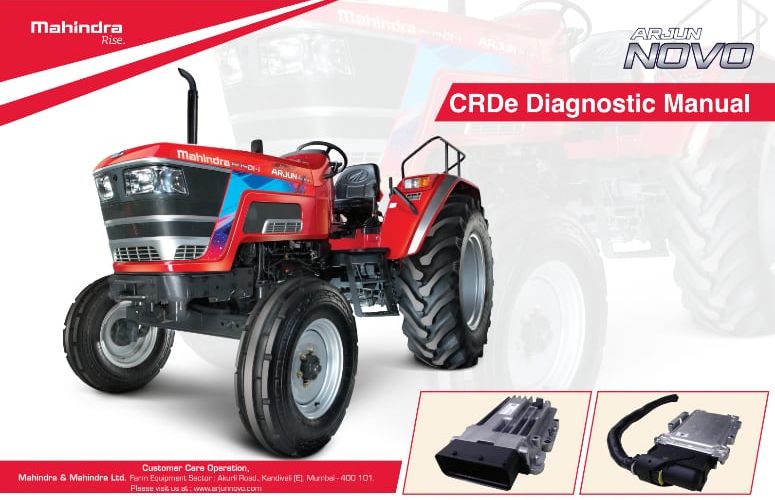
Whenever a fault is detected, the OBD system stores a unique code in its memory, which corresponds to the specific fault or issue that has been identified. This code can be retrieved using a diagnostic scan tool or code reader, and then used to diagnose and repair the underlying problem in the vehicle. The OBD system both diagnoses the fault & displays the DTC code through visible warnings such as the illumination of a check engine light. DTCs are essential for identifying and resolving problems in modern vehicles and are used by both mechanics and DIY enthusiasts to maintain and repair their tractors.
How to Read an Mahindra Tractor DTC Codes?
These Mahindra Tractor DTC Codes are composed of five characters, where each character provides specific information about the problem.
- The first character is a letter that indicates the control system with an issue. It can be:
– P (powertrain),
– C (chassis),
– B (body),
– U (network). - The second character is a digit that shows if the code is standardized or not. 0 represents generic SAE code used by all vehicles following OBD-II standard while 1 represents manufacturer-specific codes unique to a specific car make or model.
- The third character is also a digit, ranging from 1 to 8. It reveals the subsystem at fault, such as the fuel or air metering system, injection system, ignition system, emissions system, vehicle speed control and idle control system, computer output circuit or transmission-related issue.
- The fourth and fifth characters are a two-digit number that identifies the exact issue of the vehicle.
The 4th and 5th characters are read together as a two-digit number (between 0 and 99) known as the specific error/fault index. These characters identify the exact issue of the tractor.
Mahindra Tractor Error Codes (List of DTCs)
If you are uncertain about the meaning of a Mahindra tractor error code, it is advisable to consult your tractor manual or contact the manufacturer for clarification. Here’s a table summarizing Mahindra tractor error codes:
DTC Error Codes from P0003 to P1114
| Error Number | Error Description |
|---|---|
| P0003 | Short Circuit to Ground of Metering Unit Output |
| P0004 | Short Circuit to Battery of Metering Unit Output |
| P0016 | Deviation Between Crankshaft and Camshaft |
| P0087 | Rail Pressure Positive Governor Deviation – Actual Rail Pressure Is Less Than the Expected Value |
| P0117 | Signal Range Check Low – Coolant Temperature Sensor |
| P0118 | Signal Range Check High – Coolant Temperature Sensor |
| P0122 | Signal Range Check Low – Primary Accelerator Pedal |
| P0123 | Signal Range Check High – Primary Accelerator Pedal |
| P0192 | Rail Pressure Sensor Voltage Below Lower Limit |
| P0193 | Rail Pressure Sensor Voltage Above Upper Limit |
| P0201 | Open Load Error – 1st Cylinder Injector |
| P0202 | Open Load Error – 2nd Cylinder Injector |
| P0203 | Open Load Error – 3rd Cylinder Injector |
| P0219 | Tractor Engine Overspeed Detected |
| P0222 | Signal Range Check Low – Secondary Accelerator Pedal |
| P0223 | Signal Range Check High – Secondary Accelerator Pedal |
| P0262 | General Short Circuit – Cylinder 1 |
| P0265 | General Short Circuit – Cylinder 2 |
| P0268 | General Short Circuit – Cylinder 3 |
| P0335 | Crankshaft No Signal |
| P0339 | Crankshaft Error Signal |
| P0340 | Camshaft No Signal |
| P0341 | Camshaft Error Signal |
| P0405 | Signal Range Check Low – Sensor Voltage for EGR Valve Position Sensor |
| P0406 | Signal Range Check High – Sensor Voltage for EGR Valve Position Sensor |
| P0562 | Signal Range Check Low – Battery Voltage Sensor |
| P0563 | Signal Range Check High – Battery Voltage Sensor |
| P0658 | Tractor Battery Voltage Low |
| P0659 | Tractor Battery Voltage High |
| P1001 | Pump Metering Unit Open Load Error |
| P1106 | Over Current Error for EGR Valve H-Bridge |
| P1107 | Over Temperature Error for EGR Valve H-Bridge |
| P1108 | Short Circuit to Battery on Out1 Error for EGR Valve H-Bridge |
| P1109 | Short Circuit to Battery on Out2 Error for EGR Valve H-Bridge |
| P1110 | Short Circuit to Ground on Out1 Error for EGR Valve H-Bridge |
| P1111 | Tractor Engine Speed to Cluster – Open Wire |
| P1112 | Engine Speed to Cluster Powerstage – Over Temperature |
| P1113 | Engine Speed to Cluster – Wire Shorted to Battery |
| P1114 | Engine Speed to Cluster – Wire Shorted to Ground |
DTC Error Codes from P1131 to P1708
| Error Number | Error Description |
|---|---|
| P1131 | Short Circuit to Ground on Out2 Error for EGR Valve H-Bridge |
| P1132 | Short Circuit Over Load Error for EGR Valve H-Bridge |
| P1133 | Temperature Dependent Over Current Error for EGR Valve H-Bridge |
| P1134 | Under Voltage Error for EGR Valve H-Bridge |
| P1135 | Open Load Error for EGR Valve Powerstage |
| P1200 | Number of Injections Limited by Charge Balance |
| P1201 | Number of Injections Limited by System |
| P1202 | Number of Injections Limited by Runtime |
| P1203 | Minimum Rail Pressure Check Failed Due to Less Rail Pressure |
| P1204 | Injector Bank – Short Circuit |
| P1206 | Engine Injector Chip Error |
| P1221 | Check of Missing Injector Adjustment Value Programming |
| P1222 | Check of Missing Injector Adjustment Value Programming |
| P1223 | Check of Missing Injector Adjustment Value Programming |
| P1300 | Check Engine (Chk) Lamp Open Load |
| P1301 | Over Temperature Error – Chk Lamp |
| P1302 | Short Circuit to Battery – Chk Lamp |
| P1303 | Short Circuit to Battery – Chk Lamp |
| P1404 | EGR Valve Jammed at Closed Position |
| P1413 | EGR Valve Jammed at Open Position |
| P1416 | Loose Contact Between Metering Unit and ECU |
| P1417 | Over Temperature of Device Driver of Metering Unit |
| P1418 | Open Load Error – Mil Lamp |
| P1419 | Short Circuit to Battery – Mil Lamp |
| P1420 | Short Circuit to Ground – Mil Lamp |
| P1423 | Maximum Rail Pressure Limit Exceeded |
| P1424 | Maximum Rail Pressure Limit Exceeded (2nd Stage) |
| P1602 | Rail Pressure Negative Governor Deviation – Actual Rail Pressure Is More Than the Expected Value |
| P1606 | Pump Metering Unit Plausibility Error at Idling |
| P1611 | Main Relay Early Opening |
| P1612 | Main Relay Stuck |
| P1650 | Mil – Over Temperature Error |
| P1701 | SPI/COM – Errors of the CY320 |
| P1702 | EEP Erase Error Based on the Error for More Blocks |
| P1703 | EEP Read Error Based on the Error for More Blocks |
| P1704 | EEP Write Error Based on the Error for One Block |
| P1705 | Error Check of No-Load Test Pulse Operation |
| P1706 | Error in the Plausibility of the Test Voltage |
| P1707 | Check of the Ratio Metric Correction |
| P1708 | Error in the Plausibility of FC and MM |
DTC Error Codes from P1709 to P2229
| Error Number | Error Description |
|---|---|
| P1709 | Error Report Due to an Interrupted SPI Communication |
| P1710 | Multiple Error in Complete ROM Test During Post Drive Detected |
| P1711 | Too Less Bytes Received by MM From CPU as Response |
| P1712 | DFC to Set a Torque Limitation Once an Error Is Detected Before MOCSOP’s Error Reaction |
| P1713 | Error Trying to Set MM Response Time |
| P1714 | Error Detected in the SPI Communication |
| P1715 | Shut-Off Path Test of the Under Voltage Detection |
| P1716 | Shut-Off Path of the Monitoring Module |
| P1717 | Time Out Error Trying to Set or Cancelling the Alarm Task |
| P1718 | Diagnostic Fault Check to Report That the Positive Test Failed |
| P1719 | Error in Time Monitoring of the Shut-Off Path Test |
| P1720 | Error in the Check of the Shut-Off Path Test of the Over Voltage Detection |
| P1726 | Error Report “WDA Active” Due to a Defect Query/Response Communication |
| P1727 | Error Report “ABE Active” Due to Under Voltage Detection |
| P1728 | Error Report “ABE Active” Due to Over Voltage Detection |
| P1729 | Error Report “ABE/WDA Active” Due to an Unknown Reason |
| P1730 | Reported MSC – Errors of R2S2 |
| P1731 | Error Sensor Supply 1 |
| P1732 | Error Sensor Supply 2 |
| P1738 | Visibility of Software Resets in DSM |
| P1741 | Communication SPI Errors of TLE6232 |
| P1742 | Injection Cut Off Demand (ICO) for Shut Off Coordinator |
| P1743 | Error Is the Plausibility Between Engine Speed in Level and Level 2 |
| P1750 | Error in the Plausibility of Current Energizing Time With Max Permitted Energizing Time |
| P1751 | Coolant Temp Display to Cluster – Wire Open |
| P1752 | Coolant Temp Display to Cluster Power Stage Over Temperature |
| P1753 | Coolant Temp Display to Cluster – Wire Shorted to Battery |
| P1754 | Coolant Temp Display to Cluster – Wire Shorted to Ground |
| P1801 | Total Counter for Rail Pressure Limiting Valve Open Condition Exceeded the Limit |
| P1802 | Rail Pressure Limiting Valve Forced Open |
| P1803 | Rail Pressure Limiting Valve Forced Open by Pressure Shocks |
| P1804 | Rail Pressure Limiting Valve Opened |
| P1805 | Quantity Balance Check if a Successful PRV Opening Is Ensured |
| P1807 | Total Time for Rail Pressure Limiting Valve Open Condition Exceeded the Limit |
| P2135 | Tractor Accelerator Pedal Plausibility Error Between Primary & Secondary Sensors |
| P2228 | Signal Range Check Low – Environment Pressure Sensor |
| P2229 | Signal Range Check High – Environment Pressure Sensor |
It’s important to consult the official documentation or seek assistance from Mahindra’s technical support to ensure you have the correct information and appropriate guidance for troubleshooting any error codes on your Mahindra tractor.
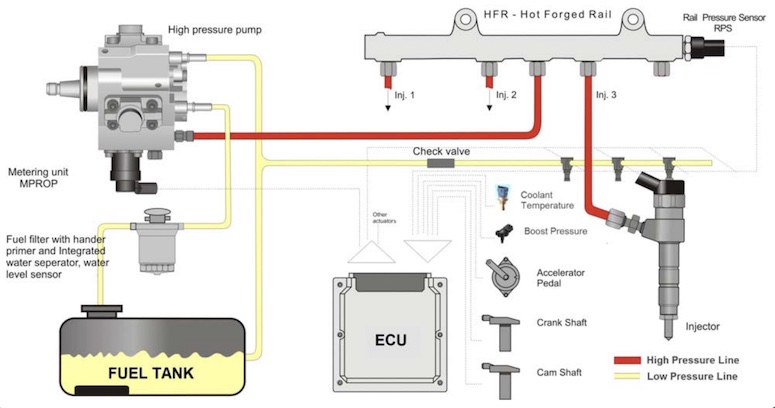
It is best to consult the tractor’s user manual or contact Mahindra customer support directly for a complete and accurate list of fault codes for your specific tractor model. They will be able to provide you with the most up-to-date and relevant information to assist you with troubleshooting and resolving any issues with your Mahindra tractor.
Can I Reset Mahindra Tractor DTCs Myself?
Resetting Diagnostic Trouble Codes (DTCs) on a Mahindra tractor typically involves using specialized diagnostic tools and software, and it’s often done by trained technicians or mechanics. However, some basic steps can be taken by tractor owners to clear certain error codes:
- Check the Manual: First and foremost, consult your tractor’s manual. It may provide information on how to clear some common error codes or offer troubleshooting steps.
- Battery Disconnect: In some cases, disconnecting the tractor’s battery for a few minutes can reset certain error codes. However, this approach may not work for all codes and should be used with caution.
- Address the Underlying Issue: It’s essential to remember that DTCs are generated for a reason – to alert you to a problem with the tractor. Before attempting to clear the code, address the underlying issue causing the fault. Clearing the code without addressing the problem may lead to further damage or safety issues.
- Diagnostic Tool: If you have access to a diagnostic tool compatible with your Mahindra tractor model, you can use it to read and clear DTCs. These tools are typically used by mechanics or service technicians, but some tractor owners invest in them for maintenance purposes.
- Consult a Professional: For complex or persistent DTCs, it’s advisable to consult a professional Mahindra technician or mechanic. They have the expertise and equipment to diagnose and reset error codes accurately.
Keep in mind that resetting error codes without addressing the underlying issue may result in the problem reoccurring. It’s essential to diagnose and fix the root cause of the error before clearing the code. Additionally, working with complex machinery like tractors often requires technical expertise, so seeking professional assistance is generally recommended for any significant issues.
Mahindra Tractor Error Codes FAQ
Q1: What are error codes on a Mahindra tractor?
A: Error codes on a Mahindra tractor are numerical or alphanumeric codes that indicate specific issues or malfunctions in the tractor’s systems. These codes are generated by the tractor’s onboard diagnostic system and can help identify the source of the problem.
Q2: How can I retrieve error codes from my Mahindra tractor?
A: The process of retrieving error codes may vary depending on the model and year of your Mahindra tractor. Typically, you can access the error codes by using the tractor’s display panel or connecting a diagnostic tool to the tractor’s OBD-II port. Consult your tractor’s manual or contact a Mahindra dealer for detailed instructions on retrieving error codes specific to your tractor model.
Q3: What do Mahindra tractor error codes mean?
A: Mahindra tractor error codes are specific to different systems or components of the tractor. Each error code corresponds to a particular issue or malfunction. The meanings of the error codes can vary, so it’s essential to refer to your tractor’s manual or contact a Mahindra dealer for a comprehensive list of error codes and their corresponding meanings.
Q4: Can I clear the error codes on my Mahindra tractor myself?
A: Clearing error codes on a Mahindra tractor usually requires a diagnostic tool or specific procedures outlined in the tractor’s manual. It’s important to note that clearing the error codes without addressing the underlying issue may result in the codes reappearing. It is recommended to diagnose and fix the problem causing the error code before attempting to clear the codes.
Q5: What should I do if I encounter an error code on my Mahindra tractor?
A: When you encounter an error code on your Mahindra tractor, refer to the tractor’s manual or contact a Mahindra dealer for guidance. The manual or dealer can provide you with information on the specific error code, its meaning, and recommended actions to resolve the issue. Depending on the severity of the code, it may be necessary to seek professional assistance for proper diagnosis and repair.
Q6: Can I continue using my Mahindra tractor if an error code appears?
A: It depends on the nature and severity of the error code. Some error codes may indicate minor issues or temporary malfunctions that can be addressed without causing further harm. However, certain error codes may indicate critical problems that require immediate attention. It is recommended to refer to the tractor’s manual or contact a Mahindra dealer for proper guidance on whether it is safe to continue using the tractor.
Q7: How can I prevent error codes on my Mahindra tractor?
A: Regular maintenance and servicing of your Mahindra tractor can help prevent error codes and ensure its optimal performance. Follow the recommended maintenance schedule outlined in your tractor’s manual, including oil changes, filter replacements, and inspections of critical systems. Additionally, operate the tractor within its specified limits and avoid overloading or exceeding the recommended usage guidelines.
Note: The information provided in this FAQ is general in nature. Always refer to your Mahindra tractor’s manual or consult a Mahindra dealer for specific instructions and guidance related to error codes and their resolutions for your particular tractor model.
What to do When a Mahindra Tractor Won’t Start?
Here’s a table that elaborates on the possible causes and solutions for a Mahindra tractor that won’t start:
| Cause | Solution |
|---|---|
| Weak or dead battery | 1. Check battery connections for corrosion or looseness. |
| 2. Charge or replace the battery if necessary. | |
| Fuel system issues | 1. Ensure there is fuel in the tank. |
| 2. Inspect the fuel filter for clogs and replace if needed. | |
| 3. Check fuel lines for blockages or leaks. | |
| Ignition problems | 1. Inspect spark plugs and clean or replace if necessary. |
| 2. Check ignition switch and wiring for faults. | |
| 3. Verify the ignition coil is functioning properly. | |
| Faulty safety switches | 1. Check the seat switch, brake switch, and other safety switches for proper engagement. |
| 2. Repair or replace any faulty switches. | |
| Engine components issues | 1. Inspect the air filter and clean or replace if clogged. |
| 2. Check engine oil level and top up if needed. | |
| 3. Examine the cooling system for any leaks or malfunctions. | |
| 4. Test the starter motor and solenoid for proper operation. |
Remember, this table provides general causes and solutions for a Mahindra tractor that won’t start. It is always recommended to refer to the specific model’s manual and consult with a professional for accurate diagnosis and guidance based on your tractor’s specific requirements.
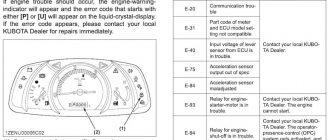
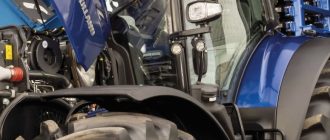
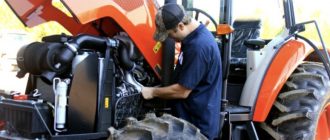
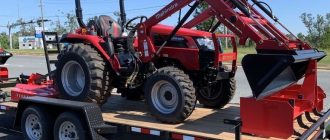

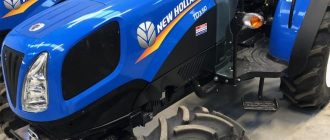
Can I reset the error codes on my Mahindra tractor?
In some cases, error codes can be cleared or reset after the underlying issue has been resolved. However, it is important to note that simply resetting the codes will not fix the problem causing the error. Once you have identified and resolved the root cause of the error, you can clear the codes using the tractor’s diagnostic tool or by disconnecting the tractor’s battery for a short period. However, it is recommended to consult the tractor’s manual or contact Mahindra customer support for the appropriate method to reset the error codes for your specific model.
What does P1611 Mahindra code mean?
Mahindra P1611 code – Main Relay Early Opening. Possible Causes:
– Loose connections;
– Wiring harness problem;
– Faulty ECU Relay;
– Faulty ECU.
DTC Information: Lamp Status – The check engine (CHK ENG) lamp in the instrument cluster blinks. DTC Reaction – ECU remains ON always.
Step 1 – Check whether the ECU relay is connected properly. If “yes” – go to step 2, if “no” – ensure better connections.
Step 2 – Turn OFF the ignition switch. Disconnect the ECU connector and ECU relay. Check the continuity between ECU connector pin K50 and ECU relay connector pin 86. (Acceptance Criteria / Ensure proper continuity). If “yes” – go to step 3, if “no” – replace the wiring harness.
Step 3 – Check the ECU connector control line (pin K50) is short circuited to ground. If “yes” – replace the wiring harness, if “no” – go to step 4.
Step 4 – Turn OFF the ignition switch. Remove the ECU relay. Check the resistance between pin 85 and 86 of relay. Acceptance Criteria / Resistance should be 50-200 ohm. If “yes” – go to Step 5, if “no” – replace the EMS Relay with a new one.
Step 5 – Check the continuity between pin 30 and 87 of ECU relay. Acceptance Criteria / No continuity between the pins. If “yes” – clear the DTC and verify. If still error repeats, replace the ECU with a new one, if “no” – replace the ECU relay with a new one.
Can I continue using my Mahindra tractor if an error code is displayed?
It is generally recommended to address the issue indicated by the error code before continuing to use the tractor extensively. Ignoring or neglecting the error code can potentially worsen the problem or cause additional damage to the tractor’s systems. If the error code indicates a serious fault or safety concern, it is best to discontinue use until the issue has been resolved.
Is it necessary to contact a professional technician for Mahindra tractor error codes?
While some error codes can be resolved through basic troubleshooting and simple repairs, others may require the expertise of a professional technician. If you are unsure about the nature of the problem or lack the necessary knowledge and tools, it is advisable to seek assistance from a qualified technician who specializes in Mahindra tractors. They can accurately diagnose and repair the specific issue indicated by the error code.
Mike, I’m gonna go out on a limb here and say I probably need a new wiring harness after I list all the error codes i have on my tractor. P0087, P1111, P1303, P1420, P1606, P1751, P1804. All of these codes came up at one time this past weekend while bush hogging on deer lease. What is your opinion?
Having multiple error codes, especially those related to various systems in your Mahindra tractor, can indeed be a sign of electrical issues. However, before concluding that you need a new wiring harness, it’s a good idea to perform some additional diagnostics and checks:
1. Check the battery (Low voltage can lead to electrical issues and error codes).
2. Inspect all visible wiring harnesses, connectors, and terminals for signs of damage, corrosion, or loose connections.
3. Check the ground connections in your tractor’s electrical system.
4. Inspect the sensors and their wiring connections (Some of the error codes you’ve listed are related to sensors).
Note whether these error codes are recurring or if they were one-time occurrences. Some error codes may appear temporarily due to specific conditions, and they may not indicate a persistent issue.
Where is the ODB2 port on a 2016 Mahindra 3540 pst?
If I’m not mistaken, on the Mahindra 3540 tractor the OBD2 port is located in the lower left corner of the column next to the fuse box.